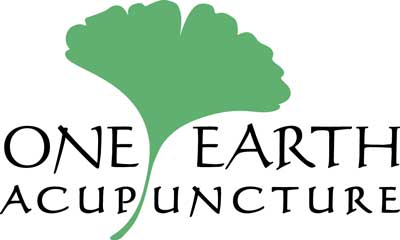Living Easy in Summertime

The beach, sun bathing, pool parties, vacations and sun, sun, sun – summer has finally arrived!
Importantly we need to take extra precautions to protect ourselves during this radiant summer season. Summer is a time for fun and games; however, it also holds risks such as heat exhaustion, heat stroke, skin cancer, food poisoning and even tetanus.
Enjoy your fun and healthful summer!
Sunlight, as we know, can be either helpful or destructive to our health, depending on our exposure level. The ultraviolet rays of the sun are a natural sterilizer, killing bacteria and fungus on the skin as well as promoting the production of vitamin D, a substance essential for bone health. It can also stimulate the immune system, raising the levels of natural killer cell activity. Too much sun exposure, however, can cause skin damage and more serious conditions such as skin cancer, heat stroke, dehydration, and suppressed immune function. To maximize benefit from the sun, limit direct exposure to thirty minutes or less daily, within two hours of sunrise or sunset.
It is critical to understand the early signs of heat exhaustion that can creep up if we do not stay well hydrated. Know the signs for yourself and also your children and the elderly. Symptoms may include light-headedness, dizziness, fatigue, weakness, headache, nausea, and sometimes vomiting and cool, clammy, pale skin.
While it is extremely important to drink plenty of fluids, to stay in the shade, and reapply sunscreen throughout the day, these measures alone are not enough. The intake of proper nutrients can aid in optimizing your health during these hot summer days. However, how do you know what foods are beneficial in the summer time?
It is well noted in Traditional Chinese Medicine (TCM) that one should eat in accordance with the seasons. This theory, derived from the ancient healers who followed the Laws of Nature by observing the patterns of the season, led them to eat and live accordingly.
Summer is perceived as the time when energy is abundant and the mood is high. This season is about expansion, growth, activity and creativity. Succulent fruits and brightly colored, leafy vegetables that are grown during this time reflect this principle, and so should our daily consumption of foods. Foods that are in season are usually displayed at the local farmer’s market. Organic fruits and vegetables that are on sale at the supermarket is also a good gauge as to what is currently in season.
Another guideline to follow this season is to eat foods according to their energetic qualities. Chinese Nutrition offers different dimensions in food analysis than Western Nutrition. Chinese Nutrition does not focus on counting calories, carbohydrates, fats, proteins and other biochemical natures of food. Rather, it classifies food according to its energetic temperature, taste, ability to moisten and strengthen, calm the mind and reduce accumulations. There are five temperatures of food to consider – hot, warm, neutral, cool and cold. The hot and warm temperatures dispel cold and warm the body. It includes foods such as ginger, garlic, chicken and lamb. The cool and cold properties clear heat, reduce toxins and generate body fluids. Cooling foods include a wide variety of vegetables, fresh fruits and juices. As you can perceive, the types of foods that should be incorporated more into the summer diets are cooling foods. For those salad lovers out there, this is a good time to enjoy a light refreshing summer vegetable or fruit salad. Have you ever noticed during those hot summer days, all you crave is a light and cooling meal? Your body is trying to tell you something!
The following is a list of foods that can help prevent dehydration and alleviate thirst – Watermelon, Apricot, Cantaloupe, Grapefruit, Lemon, Orange, Tomato, Asparagus, Sprouts (alfalfa, mung bean), Bamboo, Beets, Bok Choy, Broccoli, Chinese Cabbage, Corn, Cucumber, White Mushroom, Snow pea, Spinach, Summer Squash ( Zucchini), Turnip, Watercress, Millet, Pearl Barely, Mung Bean, and Lentil.
Other helpful tips for the summer season:
Keep a pitcher of water with slices of lemon and/or cucumber around the house for you and your family to enjoy. Blend some watermelon with water to make a delicious watermelon juice drink.
Cook with small amounts of spicy or pungent spices to balance the cooling properties of foods.
Eat in moderation. Over consumption of any food, especially cooling foods, can lead to food stagnation and phlegm accumulation, which leads to sluggishness and possibly diarrhea.
Do not leave your food out for too long. The hot weather tends to increase food spoilage.
Stay away from dairy, heavy, greasy, fried foods.
Keep in mind that these are general summer nutrition tips for everyone. It is important to acknowledge that you are your own unique individual. Your diet should reflect this principle regardless of the season.
And don’t forget to consult your physician or pharmacist about important side effects of medications that may affect your water metabolism, exposure to sun and/or food addition to your diet.
One patient’s experience:
“I started acupuncture with Evelynne in the summer of 2010. I have a recurring problem with eczema, mostly only in the summer. I have had the problem for years and tried MANY topical medications (and even some pills) but none gave me relief. The itching in my scalp was very intense and most embarrassing I would occasionally get a rash on my face. Evelynne had told me that ‘acupuncture is a PROCESS’ and during my first visit I had a lot of hope; I admit that the results were not immediate and after about 6 treatments I was kind of disappointed. But flash forward 1 year, after steady treatment I am ecstatic that I have had no itching or rash!” — Kris P, age 38
Evelynne’s note: Acupuncture has been known to help with a wide variety of disorders including eczema. Herbs in conjunction with acupuncture can have a more powerful effect in treating the root of the cause. If your eczema tends to be dry, red, and itchy an acupuncturist would label it as a “wind heat” problem; if your eczema is moist, oozing fluid, red, and itchy we would see it as a “damp heat” problem.
Often eczema develops at an early age in conjunction with allergic asthma. What’s interesting is that the Chinese Lung — not to be confused with the actual organ-lung – is related to the skin. The Chinese Lung is linked to the pores and the Chinese Kidney is said to nourish and moisten the skin. Acupuncture will both treat your symptoms as well as treat the underlying causes of your condition. Duration of treatment will depend on each individual case.

Evelynne Toth, L.Ac
Founder & Owner

